By Larry Hinzman, International Arctic Science Committee (IASC) President; Matthew L. Druckenmiller, US Delegate to IASC; Gerlis Fugmann, IASC Executive Secretary; Andrey N. Petrov, Alternate US Delegate to IASC; and Federica Scarpa, IASC Communications Manager
The Need, Vision, and Goals of ICARP IV
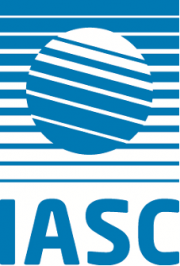
In lead up to its 35th anniversary in 2025, the International Arctic Science Committee (IASC) is coordinating a multi-year planning process for the Fourth International Conference for Arctic Research Planning (ICARP). This process will engage Arctic researchers, policy makers, residents, and stakeholders from around the world to collegially discuss the state of Arctic science, the place the Arctic occupies in global affairs and systems, to consider the most urgent knowledge gaps and research priorities that lie before us, and to explore avenues to address these research needs.
The first ICARP was convened in Hanover, New Hampshire in 1995, implementing the IASC Founding Articles' call for IASC to host such a conference periodically in order to "review the status of Arctic science, provide scientific and technical advice, and promote cooperation and links with other national and international organizations." Since then, it has been the role of IASC to coordinate this important meeting every decade. ICARP II was held in Copenhagen, Denmark in 2005 and developed twelve forward-looking science plans and resulted in several follow-up international projects and programs, mostly within the framework of the International Polar Year 2007–2008. ICARP III was in Toyama, Japan in 2015 and provided a framework to further the development of cross-cutting, interdisciplinary, and trans-disciplinary initiatives for advancing Arctic research cooperation and applications for Arctic knowledge. The IASC Strategic Plan (2018–2023) builds on the key priorities and overarching messages of ICARP III.
For ICARP IV, a process initiating in 2022 will culminate at the ICARP conference to be convened in Boulder, Colorado in 2025, hosted by a consortium of US institutions, including the University of Colorado Boulder, University of Northern Iowa, University of Alaska Fairbanks, and Alaska Pacific University. ICARP I, II, and III focused the attention of the world's researchers toward the value of strategic international coordination in accelerating progress in addressing critical challenges. ICARP IV will build upon this concept by striving to achieve consensus and build collaborations among the leading scientific, academic, environmental, Indigenous, and political organizations currently concerned with Arctic issues.
The ICARP IV process during 2022 to 2025 must be well-planned and coordinated with other ongoing international activities. ICARP IV will identify important research questions and priorities that cut across disciplines and knowledge systems, and that require new and innovative thinking and collaboration. ICARP IV will develop a vision for implementation and science plans for addressing these priorities. An integral aspect of the ICARP IV will be the inclusion of early career scientists (in collaboration with APECS), Indigenous Peoples, and local residents in the development of priorities and science plans to address the key questions.
Scientific Foci
It is the intention of IASC that the focus of ICARP IV be on important research questions that cut across many disciplines and knowledge systems. IASC recognizes that Traditional Knowledge, Indigenous Knowledge, and academic scientific knowledge are coequal and complementary knowledge systems that all can and should inform the work of IASC and ICARP IV. Research efforts should provide improved understanding and predictive capabilities for the evolution of Arctic systems. Consideration will be given to providing relevant and useful information that peoples in the Arctic and those in more temperate regions need in order to adapt and prepare for the changing Arctic and its impact on global systems.
Community-wide Engagement in ICARP IV
The ICARP IV process must mesh with other ongoing international activities and have broad community support and sponsorship. To ensure this, IASC is engaging our partners in Arctic research to enable a community-wide undertaking. We are continuing to recruit a cadre of leaders from across diverse institutions to guide the planning and facilitate the successful execution of this ambitious conference. This Steering Group will oversee the implementation of the ICARP IV process and provide intellectual and organizational support for the undertaking.
IASC encourages institutions and organizations that want to participate in the ICARP IV process to contact the IASC Secretariat at info [at] iasc.info.
At present, the list of confirmed partners includes:
| (ADC) | Arctic Data Committee |
| (AFoPS) | Asian Forum on Polar Science |
| APECS | Association of Polar Early Career Scientists |
| AWRH | Association of World Reindeer Herders |
| CliC | Climate and Cryosphere (CliC) Project of the WMO World Climate Research Programme |
| CAFF | Conservation of Arctic Flora and Fauna Working Group of the Arctic Council |
| EPB | European Polar Board |
| FARO | Forum of Arctic Research Operators |
| IASSA | International Arctic Social Sciences Association |
| IACS | International Association of Cryospheric Sciences |
| ICES | International Council for the Exploration of the Sea |
| IPA | International Permafrost Association |
| ISC | International Science Council |
| ISAC | International Study of Arctic Change |
| NySMAC | Ny-Ålesund Science Managers Committee |
| PEI | Polar Educators International |
| SC | Saami Council |
| SCAR | Scientific Committee on Antarctic Research |
| SDWG | Sustainable Development Working Group of the Arctic Council |
| SAON | Sustaining Arctic Observing Network |
| UArctic | University of the Arctic |
Organizational Structure
Steering Group (SG). The SG consists of appointees from our IASC partners. Members of the Steering Group are well-qualified leaders representing a full range of scientific disciplines, knowledge systems, and Arctic regions. The SG includes representation from the Indigenous Peoples of the Arctic as well as a representative from the host country. It is tasked to identify and develop the overall conference goal, theme and agenda, sub-theme research questions, and mechanisms for post-conference action and implementation. The SG will report to the IASC Executive Committee and our partner organizations on a regular basis between 2022 to 2025. The SG will have a Secretariat provided by IASC to assist in its function. The SG will collaborate closely with the Conference Host Committee that will be formed in winter/spring 2022.
Research Question Teams (RQTs). One of the early tasks of the SG will be to determine the appropriate scientific foci for the conference and how pre-conference decisions will guide the conference agenda and science planning activities. Through a multi-year process of broad engagement, the SG will determine not only the foci, but also the research questions to be addressed. As noted above, these questions will be cross-cutting, informed by experts and the most current literature, and will serve as the basis for the formation of Research Question Teams (RQTs). These RQTs will be led by co-chairs of one early career researcher and one senior scientist, with additional support provided by the IASC Working Groups (WG) who will advise as they develop products for the ICARP IV conference. Multidisciplinary teams were assembled to compile justifications for urgent research needs and to recommend research plans during ICARP I and II. ICARP III took a different approach by asking the broader international community to play a more engaged role in identifying critical information gaps. IASC WGs will be called upon to help resolve questions identified during the ICARP IV process. We also anticipate that our partner organizations represented on the SG will also address some of the plan's urgent research questions and priorities in a manner befitting their mission and capabilities.
Host for ICARP IV
Following an invitation from the US Polar Research Board at the National Academies, the IASC Council voted to approve Boulder, Colorado as the host of ICARP IV in 2025, to be held concurrently with Arctic Science Summit Week (ASSW). The Conference Host Committee is committed to providing an outstanding venue for sharing scientific achievements, advancing collaboration, and planning for the future of Arctic research. The University of Colorado Boulder (UCB) and the city of Boulder are home to an active and long-standing hub for Arctic research, hosting multiple world-renowned organizations, including the Cooperative Institute for Research in Environmental Sciences (CIRES), National Snow and Ice Data Center (NSIDC), Institute for Arctic and Alpine Research (INSTAAR), National Center for Atmospheric Research (NCAR), University Consortium for Atmospheric Research (UCAR), the National Oceanic and Atmospheric Administration (NOAA)'s David Skaggs Research Center, and others. In 2022, UCB will also begin hosting an international office for the Association of Polar Early Career Scientists (APECS) with a full-time manager to coordinate international activities with the APECS Secretariat. These organizations, together with key partners from across a range of US universities, organizations, and Indigenous and Tribal partners, will provide a deep and diverse source of expertise for hosting a conference that is uniquely tailored to the needs and interests of ICARP participants.

Boulder, scenically located at the foothills of the Rocky Mountains while also approximately 60 km from Denver International Airport, will be an excellent spring meeting location for participants from around the world. However, the Conference Host Committee will also focus on minimizing the carbon footprint of the conference. They will remain responsive to recommendations from IASC, in particular from IASC's Action Group on Carbon Footprint (AGCF), and will consult emerging best practices for developing a hybrid conference structure that will allow for both in-person and virtual participation. Additionally, they plan to explore the use of satellite conference hub locations, which may both minimize long-distance international travel and provide innovative ways for Arctic residents to participate from multiple Arctic satellite locations.
About the Authors
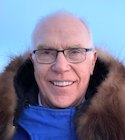 Larry Hinzman is the President of the International Arctic Science Committee (IASC) and a Professor of Civil and Environmental Engineering at the University of Alaska Fairbanks. Hinzman previously served as the UAF Vice Chancellor for Research and Director of the International Arctic Research Center. Hinzman's primary research interests involve permafrost hydrology. He conducted hydrological and meteorological field studies in the Alaskan Arctic continuously for over 35 years while frequently collaborating on complementary research in the Russian and Canadian Arctic. He is strongly committed to facilitating national and international partnerships to advance our understanding of the Arctic systems.
Larry Hinzman is the President of the International Arctic Science Committee (IASC) and a Professor of Civil and Environmental Engineering at the University of Alaska Fairbanks. Hinzman previously served as the UAF Vice Chancellor for Research and Director of the International Arctic Research Center. Hinzman's primary research interests involve permafrost hydrology. He conducted hydrological and meteorological field studies in the Alaskan Arctic continuously for over 35 years while frequently collaborating on complementary research in the Russian and Canadian Arctic. He is strongly committed to facilitating national and international partnerships to advance our understanding of the Arctic systems.
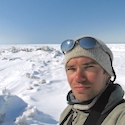 Matthew Druckenmiller serves as the US Delegate to the International Arctic Science Committee (IASC). He is a Research Scientist with the National Snow and Ice Data Center (NSIDC) at the University of Colorado Boulder, where he also serves as Director of the Navigating the New Arctic Community Office (NNA-CO) and co-lead for the Exchange for Local Observations and Knowledge of the Arctic (ELOKA). Since 2006, Matthew has worked within the coastal regions of Arctic Alaska, observing the connections between changing sea ice conditions, marine mammal habitat, and local Indigenous community use of sea ice. Matthew earned his PhD in geophysics from the University of Alaska Fairbanks in 2011.
Matthew Druckenmiller serves as the US Delegate to the International Arctic Science Committee (IASC). He is a Research Scientist with the National Snow and Ice Data Center (NSIDC) at the University of Colorado Boulder, where he also serves as Director of the Navigating the New Arctic Community Office (NNA-CO) and co-lead for the Exchange for Local Observations and Knowledge of the Arctic (ELOKA). Since 2006, Matthew has worked within the coastal regions of Arctic Alaska, observing the connections between changing sea ice conditions, marine mammal habitat, and local Indigenous community use of sea ice. Matthew earned his PhD in geophysics from the University of Alaska Fairbanks in 2011.
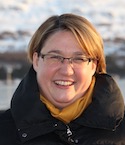 Gerlis Fugmann serves as the Executive Secretary of the International Arctic Science Committee (IASC).Fugmann brings extensive experience in Arctic research and international organizations. She has held positions as the Executive Director of the Association of Polar Early Career Scientists (APECS) based at the Alfred Wegener Institute, Helmholtz Centre for Polar and Marine Research (AWI) in Germany, and before that at the UiT The Arctic University of Norway in Norway. She completed her PhD in 2011 in Geography at the Justus Liebig University Giessen (Germany) and afterwards worked as a postdoctoral researcher at the International Centre for Northern Governance and Development at the University of Saskatchewan in Canada.
Gerlis Fugmann serves as the Executive Secretary of the International Arctic Science Committee (IASC).Fugmann brings extensive experience in Arctic research and international organizations. She has held positions as the Executive Director of the Association of Polar Early Career Scientists (APECS) based at the Alfred Wegener Institute, Helmholtz Centre for Polar and Marine Research (AWI) in Germany, and before that at the UiT The Arctic University of Norway in Norway. She completed her PhD in 2011 in Geography at the Justus Liebig University Giessen (Germany) and afterwards worked as a postdoctoral researcher at the International Centre for Northern Governance and Development at the University of Saskatchewan in Canada.
 Andrey N. Petrov is Professor of Geography and ARCTICenter Director at the University of Northern Iowa. He is currently the Alternate US Delegate to the International Arctic Science Committee (IASC). Petrov is an economic and social geographer who specializes in Arctic economy and sustainable development, with an emphasis on the Indigenous Peoples and changing Arctic social-ecological systems. Petrov leads the Research Coordination Networks in Arctic Sustainability (Arctic-FROST) and Arctic Coastal Resilience (Arctic-COAST), as well as multiple research projects. Petrov is the immediate Past President of the International Arctic Social Sciences Association (IASSA) and Past Chair of the IASC Social and Human Working Group.
Andrey N. Petrov is Professor of Geography and ARCTICenter Director at the University of Northern Iowa. He is currently the Alternate US Delegate to the International Arctic Science Committee (IASC). Petrov is an economic and social geographer who specializes in Arctic economy and sustainable development, with an emphasis on the Indigenous Peoples and changing Arctic social-ecological systems. Petrov leads the Research Coordination Networks in Arctic Sustainability (Arctic-FROST) and Arctic Coastal Resilience (Arctic-COAST), as well as multiple research projects. Petrov is the immediate Past President of the International Arctic Social Sciences Association (IASSA) and Past Chair of the IASC Social and Human Working Group.
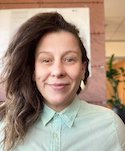 Federica Scarpa has been IASC Communications Manager since 2017 when the IASC Secretariat moved from Germany to Akureyri, in the north of Iceland. Federica holds a MA in Cultural and Social Anthropology (University of Ca Foscari, 2011) and a MA in Polar Law (University of Akureyri, 2013). Contact: Federica.scarpa [at] iasc.info
Federica Scarpa has been IASC Communications Manager since 2017 when the IASC Secretariat moved from Germany to Akureyri, in the north of Iceland. Federica holds a MA in Cultural and Social Anthropology (University of Ca Foscari, 2011) and a MA in Polar Law (University of Akureyri, 2013). Contact: Federica.scarpa [at] iasc.info
